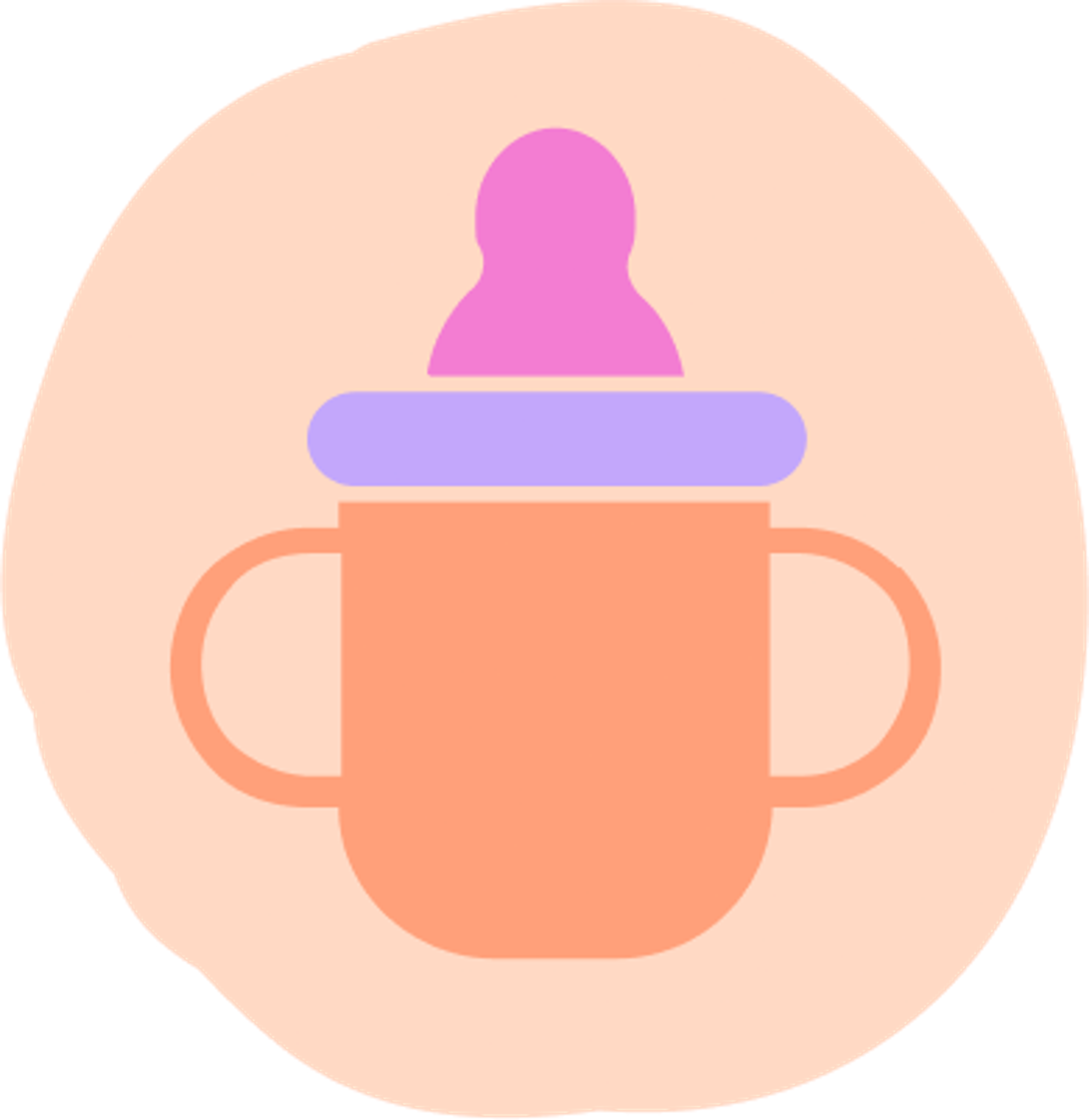Can I breastfeed during or after an abortion or miscarriage?
Posted September 25, 2025Short answer - yes!
You can safely breastfeed your child before, during, or after any type of abortion. And it’s also ok to breastfeed during a miscarriage since it’s usually treated with the same medications and procedures as abortions so, it makes sense to have the same questions (and the same reassurances) about breastfeeding.
Caring for and even breastfeeding a child when someone needs an abortion or experiences a miscarriage are very common. In fact, a majority of people who have abortions are already parents. According to 2022 data from the Center for Disease Control + Prevention, 6 out of 10 people who have abortions are already parents and half of them have two or more children.
“Parents show their love in countless ways. Ending a pregnancy should not interfere with your ability to feed and nourish your baby or older child in the way you choose, and that includes breastfeeding throughout the abortion or miscarriage process in nearly all cases.”
- Dr. Caitlin Weber - family medicine doctor, abortion provider, and IBCLC

Quick facts:
- Breastfeeding does not change how the abortion pills are absorbed or how well they work.
- If you’re alert enough to safely hold your baby, you’re safe to breastfeed.
- You don’t need to pump + dump unless:
- If you have an ectopic pregnancy and are given methotrexate — pump and dump for 24 hours
- If given codeine or tramadol for pain — pump and dump for 24 hours. It is also ok to ask what medications you are being prescribed and ask if there are any other options.
If you’re unsure, call (833) 246-2632 to talk with a doctor at the Miscarriage + Abortion Hotline.

How does a medication abortion affect breastfeeding?
The National Library of Medicine reviewed both mifepristone and misoprostol and found levels that pass into breast milk are very low.
Because both mifepristone and misoprostol are so safe to use while breastfeeding you don’t need to interrupt feeding or pump and dump.
And vice versa: breastfeeding does not change how the abortion pills are absorbed or how well they work.
Have more questions about self managing an abortion? Check out these articles:
- Abortion with Pills Before 6 Weeks
- Abortion with Pills After 12 Weeks
- How do I know if the abortion pills worked?
- What if I throw up after taking abortion pills?

How does an in-clinic procedure abortion affect breastfeeding?
The procedure itself does not affect your ability to breastfeed. What matters are the medications you are given during or after.
Common medications for abortions that are safe while breastfeeding:
- Ibuprofen
- Tylenol
- local anesthetic (like Lidocaine)
- Nitrous Oxide
When it comes to anesthesia (including sedation) the American Society of Anesthesiologists says “Patients should resume breastfeeding as soon as desired after surgery because anesthetic drugs appear in such low levels in breastmilk. It is not recommended that patients “pump and dump” and rather they should “sleep and keep”.
A good rule of thumb is that if you’re alert enough to hold your baby, it’s safe for you to feed them!

Will my milk supply change after an abortion or miscarriage?
Pregnancy hormones can affect milk supply. For some, milk production already dips or decreases early in pregnancy—sometimes that’s even the first clue of being pregnant again. After an abortion or miscarriage, supply usually bounces back within a week or two, once the pregnancy hormone is out of your body.
You can support your supply by:
- Staying well hydrated.
- Eating enough food (sometimes more than usual).
- Keep breastfeeding or pumping regularly.
Consistency is key! Your supply should return if you keep stimulating it!

What should I know about breastfeeding through an abortion or miscarriage?
Nourish yourself.
Eat a lot of calories and drink electrolytes to stay hydrated. Oats and flax seeds are helpful for lactation. And, rest as much as you need.
Have a plan, but give yourself flexibility.
You may feel too tired, nauseous, have pain or feel too emotional to feed directly — that's ok! See how you feel in the moment and be prepared for all of the options. Consider having someone available to take care of your child with ready made bottles.
Some questions to ask yourself:
- Do you want to breastfeed your baby while you’re miscarrying or after taking the medications? Will you want to breastfeed while feeling cramps?
- Would it feel better to have someone bottle feed your baby during this time?
Bring a pump just in case to your appointment
Your appointment may take longer than expected, and you might feel tired, sore, or stressed. You may go in with a plan of breastfeeding but then not feel up for it in the moment, which is ok!
Doulas and lactation consultants can be a wonderful support.
Not only can they support you with breastfeeding, but full spectrum doulas are well versed in supporting people who are having abortions too! For virtual support, reach out to Holistic Abortions. And you can check in with your local abortion fund to see if they offer support or can recommend doulas in your area!
Be kind and gentle with yourself.
For some, breastfeeding during an abortion can provide comfort and connection with your child. And for others, it may bring up grief, sadness or mixed feelings about the loss of this pregnancy. All of that (and sometimes all at once) is ok <3
Ask your doctor.
If you have questions, reach out to your doctor or speak to one of the volunteer doctors at M+A Hotline by calling (833) 246-2632.


